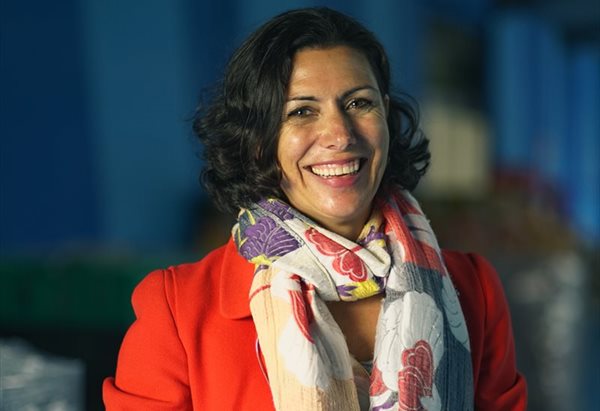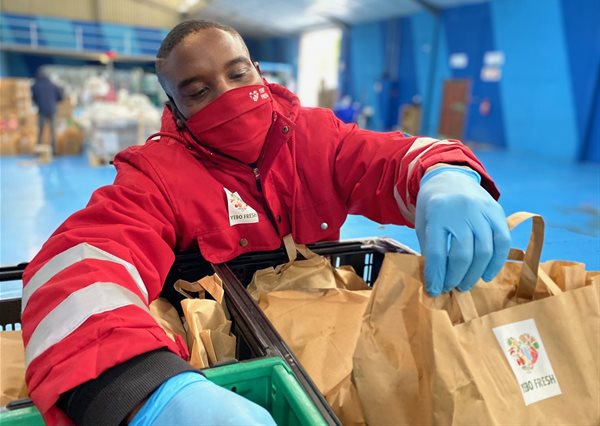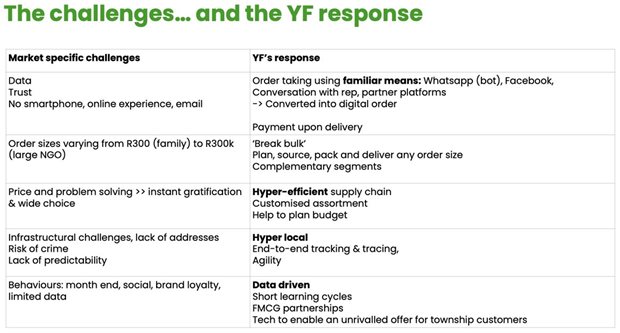
Initially delivering groceries to residents of the Imizamo Yethu informal settlement, the company has since expanded to deliver food and household goods to both private households and organisations in all Cape Town townships within a 40km radius.
Customers place their orders either via the website, a WhatsApp order bot or a WhatsApp call service. Because not all customers have access to smartphones or know how to order online, the company also makes use of paper forms, which are then digitised by local agents.
Yebo Fresh has also played a key role in food distribution during the Covid-19 pandemic, by assisting charities with getting food parcels into informal settlements, with the company's local network of drivers able to navigate the sometimes intricate labyrinth of streets in more informal areas.

In the run-up to E-commerce Day on 10 March, Boonstra chatted to us about starting and scaling Yebo Fresh, and the misconceptions that cloud SA's lucrative township retail economy.
What drove me to launch Yebo Fresh back in 2018 was a combination of my engineering background, many years in logistics and retailing and the need for transformation in the world of online shopping, as well as making quality, fresh food and household goods accessible to all.
Through my love for this country, I moved to South Africa in 2015, and I was able to see the growth of online retail here, and how drastically it changed people’s lives for the better, be it for safety or convenience. While doing volunteer work and retail consulting, I had a conversation around the challenges of township shopping with an entrepreneur, who encouraged me to start a business, and said he would assist with funding.
What resulted was a small business operating from my kitchen table and garage in Hout Bay, servicing the local community. It has now transformed into a business operating all over the Cape, with plans for nationwide expansion in the near future.
As described above, the business really began with humble beginnings operating out of my home, and we now occupy a 1,200 square metre warehouse in an industrial area. We have grown through a customised offer, strong partnerships, talent, and a high service level.
We offer an affordable safe, convenient alternative to the hectic shopping trip and when covid19 hit, we're very well placed to respond to the rapidly increasing demand. Our main priority is always to bring food efficiently, cheaply and safely into townships.
We work among multiple segments that complement each other, like private households, NGOs and spaza shops. They have similar challenges, with slightly different solutions. Through all our work we have managed to build a solid foundation serving these multiple segments, with a model that has been proven to work and is ready to scale.
Our growth is also proof that the main market is ready for the online revolution, although it requires a solution that is different from the upper market and is customised to the needs of the township customer.

There are many misconceptions about the township economy, and it shouldn’t be that way given that the market is worth an estimated R158bn.
• Township does not equal informal settlement
• The township economy is negligible – in fact it is worth R158bn
• There is ‘one township market’ – every area is different with different dynamics
• People with a small budget cannot afford to be picky – they are more critical than anyone else because they cannot afford to make a mistake
• Price is more important than quality – brands are important, people are price-sensitive but will pay a bit more to get the right brand on the table
The traditional way is to build more retail square metres instead of innovating. Why should there be non-stop innovation in the upper market but the response to the township market is ‘build more stores’?
Also, the quality of products on offer in, particular produce, is often considerably less in a township mall than in an upper market area. The customer sees that and will thus choose to buy at a local street vendor, who often has fresher products at a better price.
Many retailers stunt with price deals but when the shopper arrives in store, the product is sold out. This feels like a scam. As a result, trends show a decrease in ‘big basket shopping’ in favour of the local neighborhood store and, in our case, online.
• Listen to your customer base
• Have a grand vision and a clear goal, be relentless in saying "no" to anything that does not contribute considerably to delivering on the goal
• Find investors that believe in your vision and share your passions, and are not just in it for the promise of a high return on capital
• Partner up as much as possible: the market is big enough for you not to be overly possessive about what you think you know, and finding the right partners will make all the difference
• Be agile enough to keep learning and if need be, to change the ‘what’ and ‘how’ that is needed to deliver on the ‘why’
The belief is that e-commerce is here to stay and that it is a big part of the future of township retail, just like it is a big part of the present and future of upper-market retail. The fact that it is really hard (because it is!) does not mean it will not happen, it just means that there is a higher barrier to entry and the players in this space will have to be even more persistent and even more resourceful to win.
E-commerce can be a safer, more efficient, cheaper and lower-waste solution to getting good access to good food, and we expect and hope to see a great variety of exciting offers to appear in this market in the future.
The inaugural E-commerce Day launches on 10 March 2021, with a special editorial focus on Bizcommunity for the week. E-commerce Day is an initiative by ecommerce.co.za.
